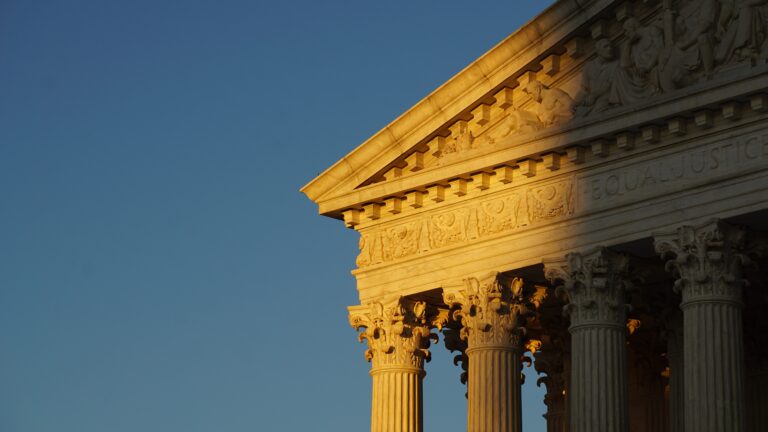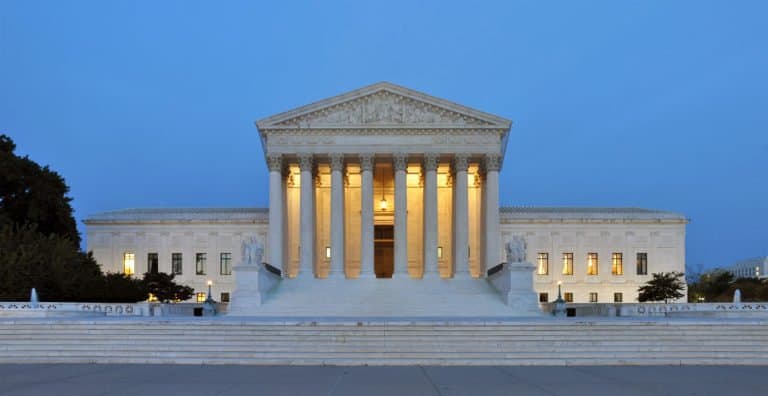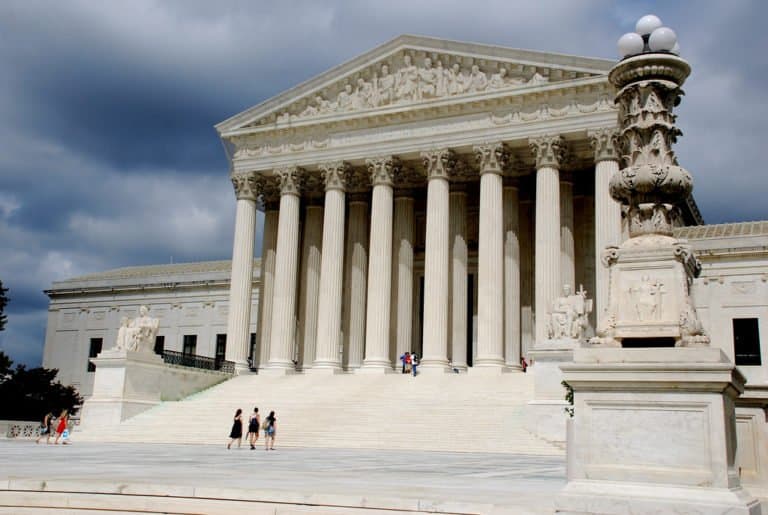Melissa Greenberg is a student at Harvard Law School.
This post is part of OnLabor’s continuing analysis of National Labor Relations Board v. Murphy Oil USA.
The National Labor Relations Board filed its reply brief in National Labor Relations Board v. Murphy Oil USA on Wednesday. Although the Solicitor General’s office had reversed its position earlier this summer, the Solicitor General gave the Board permission to represent itself before the Supreme Court. The full brief is available.here.
The Board begins its brief by arguing that employees engage in protected activity under Section 7 of the NLRA when they join together in a class action lawsuit. The brief continues,
Congress made it an unfair labor practice for employers to “interfere with, restrain, or coerce employees in the exercise of the rights guaranteed in [S]ection 157.” 29 U.S.C. 158(a)(1). The Board determined early on that an employer violates that prohibition by making employees promise to forego the collective rights Congress afforded them…. Individual waivers are inconsistent with the collective nature of Section 157 rights and diminish those collective rights by permanently removing employees one by one from the group available to engage in concerted activities.
The Board rejects the notion that the Court is required to “reconcile” the Federal Arbitration Act (FAA) and the NLRA. The Supreme Court “has never enforced an arbitration agreement that violates another federal statute, as the agreements here violate the NLRA by imposing prospective waivers of concerted activities.” The Board explains that when the agreements are illegal under federal law “there is no need to reconcile the FAA and the other federal statute—under the congressional-command test or any other analytical framework—because the illegal agreement is not a valid contract entitled to enforcement under Section 2 of the FAA.”
Instead, the Board argues that “Section 2’s saving clause preserves the Board’s rule invalidating agreements that require employees to individually arbitrate work-related claims. That rule is not based on hostility towards arbitration, which the Board recognizes as an effective forum for vindicating federal laws.” The Board rule “is entirely neutral with respect to the forum. An employer may, consistent with the NLRA, insist that employees pursue all work-related disputes in arbitration; what it may not do is bar employees from pursuing their legal claims collectively in any forum, arbitral or judicial.”
Furthermore, the Board maintains that the Employers’ position “would transform the FAA’s recognition of arbitration agreements as presumptively legitimate contracts into a license to evade another federal statute.” In the context of Section 7, “enforcement of an arbitration agreement that requires employees to resolve their disputes with employers solely on an individual basis makes the enforcing court a party to illegal interference with the established right of employees to seek vindication of their employment rights through concerted activity.”
General Counsel Richard Griffin Jr. will argue the case on behalf of the NLRB. Oral argument is scheduled for October 2, 2017. Griffin’s term expires at the end of October.










Daily News & Commentary
Start your day with our roundup of the latest labor developments. See all
April 17
Southern governors oppose UAW organizing in their states; Florida bans local heat protections for workers; Google employees occupy company offices to protest contracts with the Israeli government
April 16
EEOC publishes final regulation implementing the Pregnant Workers Fairness Act, Volkswagen workers in Tennessee gear up for a union election, and the First Circuit revives the Whole Foods case over BLM masks.
April 15
The Supreme Court ruled in favor of bakery delivery drivers in an exemption from mandatory arbitration case; A Teamsters Local ends its 18-month strike by accepting settlement payments and agreeing to dissolve
April 14
SAG-AFTRA wins AI protections; DeSantis signs Florida bill preempting local employment regulation; NLRB judge says Whole Foods subpoenas violate federal labor law.
April 12
The EEOC weighs in on an anti-discrimination lawsuit against Workday; a rule expanding overtime protection moves closer to publication; Amazon decreases spending on anti-union consultants.
April 11
Maine Legislature votes to grant farm workers minimum wage and labor rights; Apple store workers in New Jersey petition to unionize; and Wisconsin Governor vetoes legislation to rollback child labor laws.